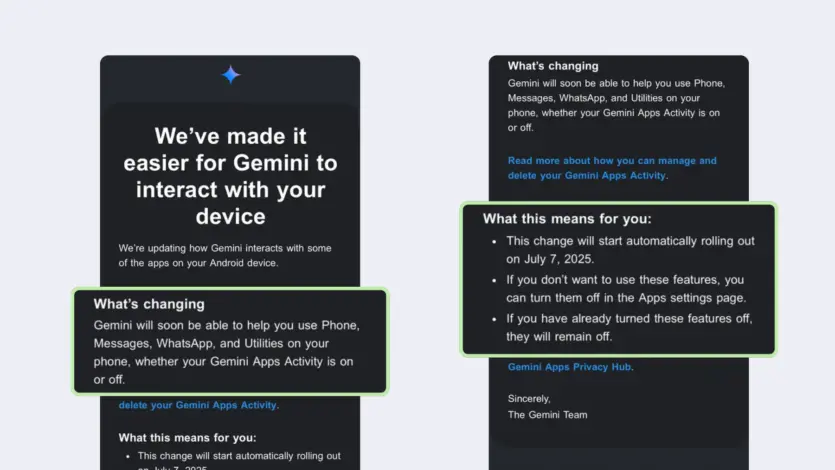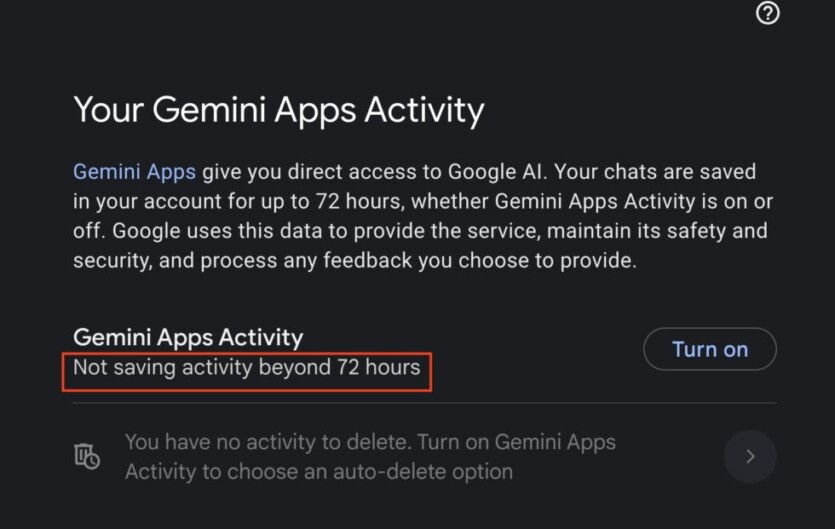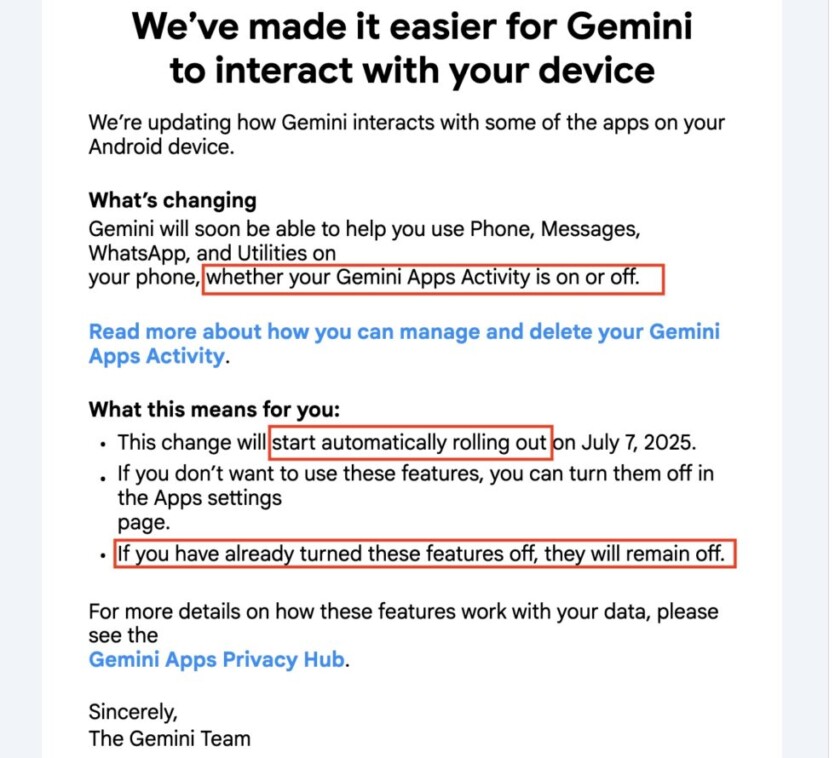
With a new update, Google allows its AI assistant Gemini to access private information and applications. And disabling access is a whole saga that does not always end in your favor.
Gemini is therefore allowed to interact with third-party Android apps — even if Gemini activity has been turned off. In fact, this is a previously announced replacing Google Assistant with AI by 2025. Therefore, since July 7, users have been allowed to give Gemini voice commands such as «Send WhatsApp message to [contact]», and artificial intelligence will perform this action without the need for separate permission.
But now a nuance: Gemini works with gadgets, messages, WhatsApp, and utilities right from the device. Officially, Google assures that Gemini does not read WhatsApp messages. However, in fact, through integration with Google Assistant or system AI utilities can still view your messages, notifications, images, and respond to them.
This change was accompanied by an email from Google that caused a wave of concern among users. It says that Gemini functionality is activated automatically, regardless of previous settings. That is, even if the activity in the applications is turned off — some data is temporarily stored for 72 hours. And this is increasingly annoying, given that Gemini is suspected of spying and recording conversations.

Amidst the confusion, many people tried to manually disable integrations using the following schemes:
- To completely disable Gemini’s access to applications, go to Profile > Applications in the Gemini mobile app and disable each one individually.
- To disable activity collection: Profile > Activity in Gemini apps > Turn off.
However, even a complete shutdown does not guarantee complete control. In some cases, Gemini remains accessible through other parts of the system. For example, on the Pixel 7, after uninstalling it, the user could still call Gemini with a gesture from the screen. Reason — Gemini is embedded in the Google app itself. You can’t get rid of it without it.


To remove Gemini completely, you will have to use ADB (Android Debug Bridge) via a PC. The instruction looks like this:
- Download Platform Tools from developer.android.com
- Unpack it into a familiar folder — for example, C:platform-tools (Windows) or ~/platform-tools (macOS/Linux).
- Add this folder to the system variable PATH — then you can call it from anywhere.
- To enable USB debugging on Android: On Android, go to Settings > About phone > press «Build number» 7 times → Developer Options will open. Enable USB Debugging in Developer Settings.
- Connect the device, allow access
- In the terminal, run the command: adb shell pm uninstall –user 0 com.google.android.apps.bard
But even this method does not always work. In some cases, the command displays the DELETE_FAILED_INTERNAL_ERROR error. As a result, Gemini remains active as long as the Google app is on the device. Alternatively, you can reset all updates to the Google app and disable it — along with Gemini, but also along with Google Search. This option is quite safe, but at the same time the most inconvenient.
Android users complain that Google does not provide a transparent way to control or remove this integration. Even the support pages contradict each other, and the emails do not contain clear instructions. At the request of a journalist Ars Technica about the possibility of completely removing Gemini, Google responded with a slippery slope. The company began to talk about the advantages of Gemini for performing daily tasks, but did not provide specific instructions for deletion.
Experts compare the situation with the integration of Internet Explorer into Windows in the 90s, when the lack of a way to disconnect the browser led to antitrust lawsuits. Email service Tutaa privacy-focused blog, said that Google «is building Gemini into Android» — and that this could be just the beginning.
Some see this integration as a convenience; others see it as a violation of data control. But one thing is clear: Android users are currently left without a clear answer as to how to completely disable Gemini or prevent it from accessing third-party apps.
Source: Neowin

Spelling error report
The following text will be sent to our editors: